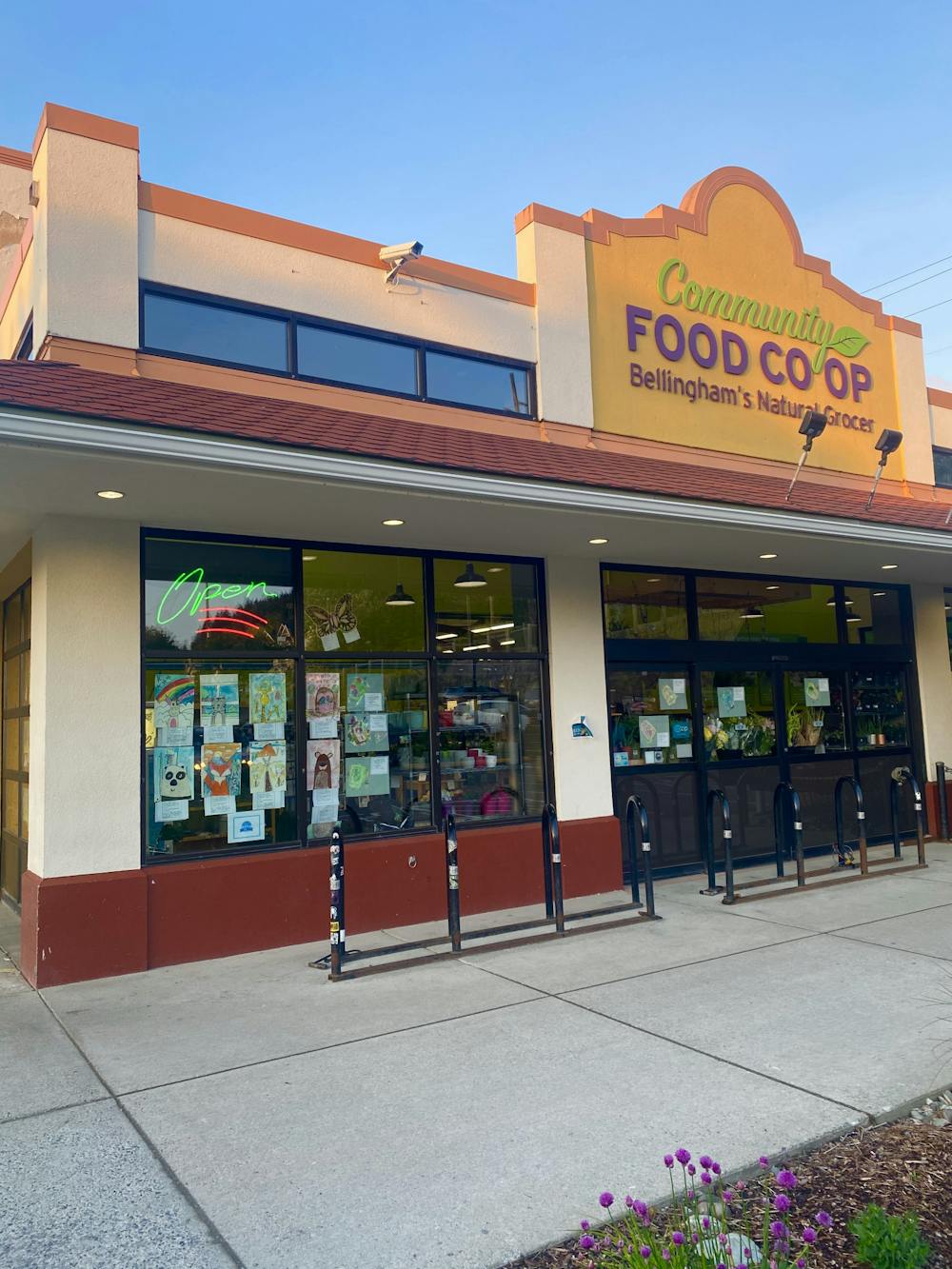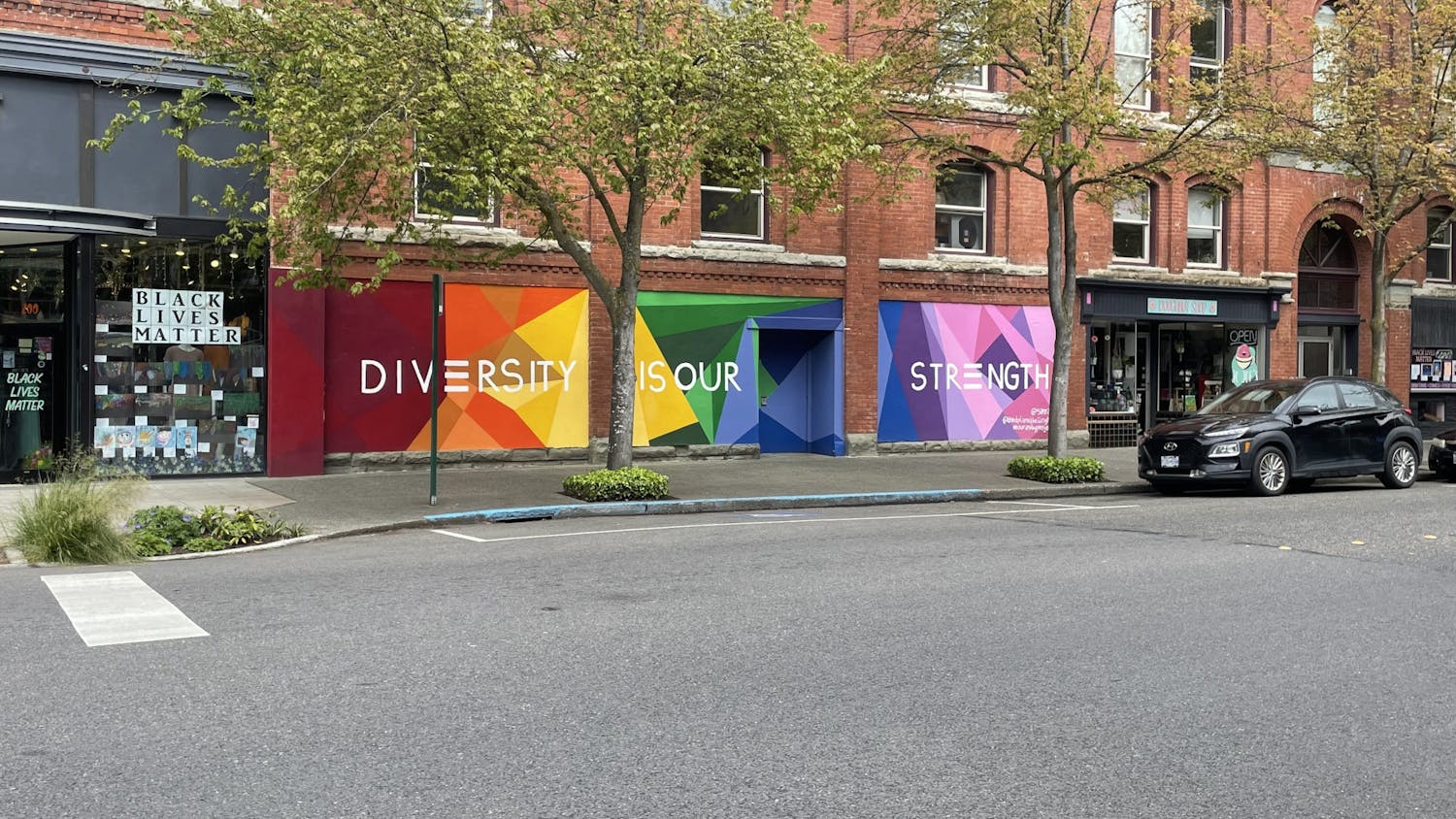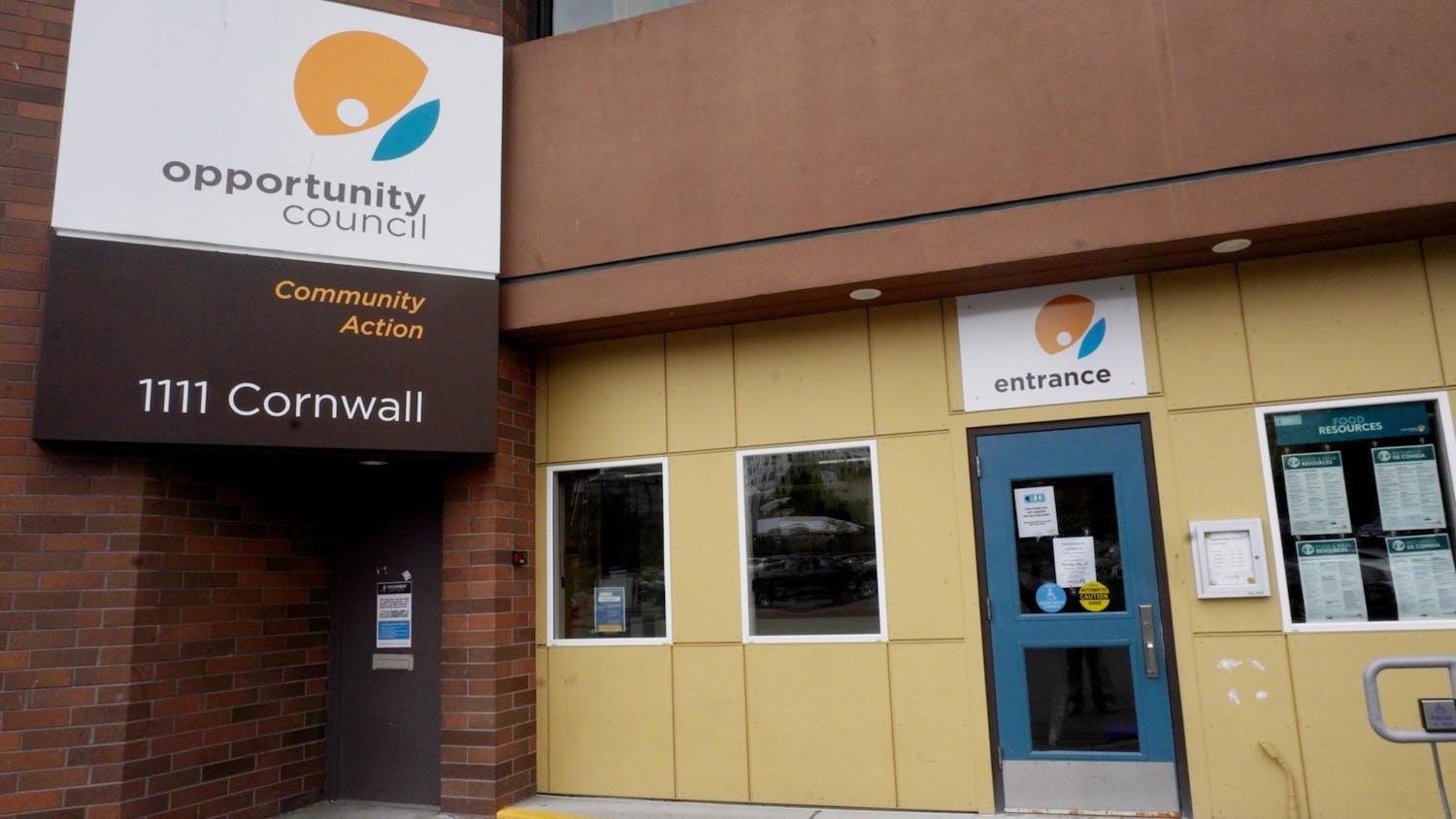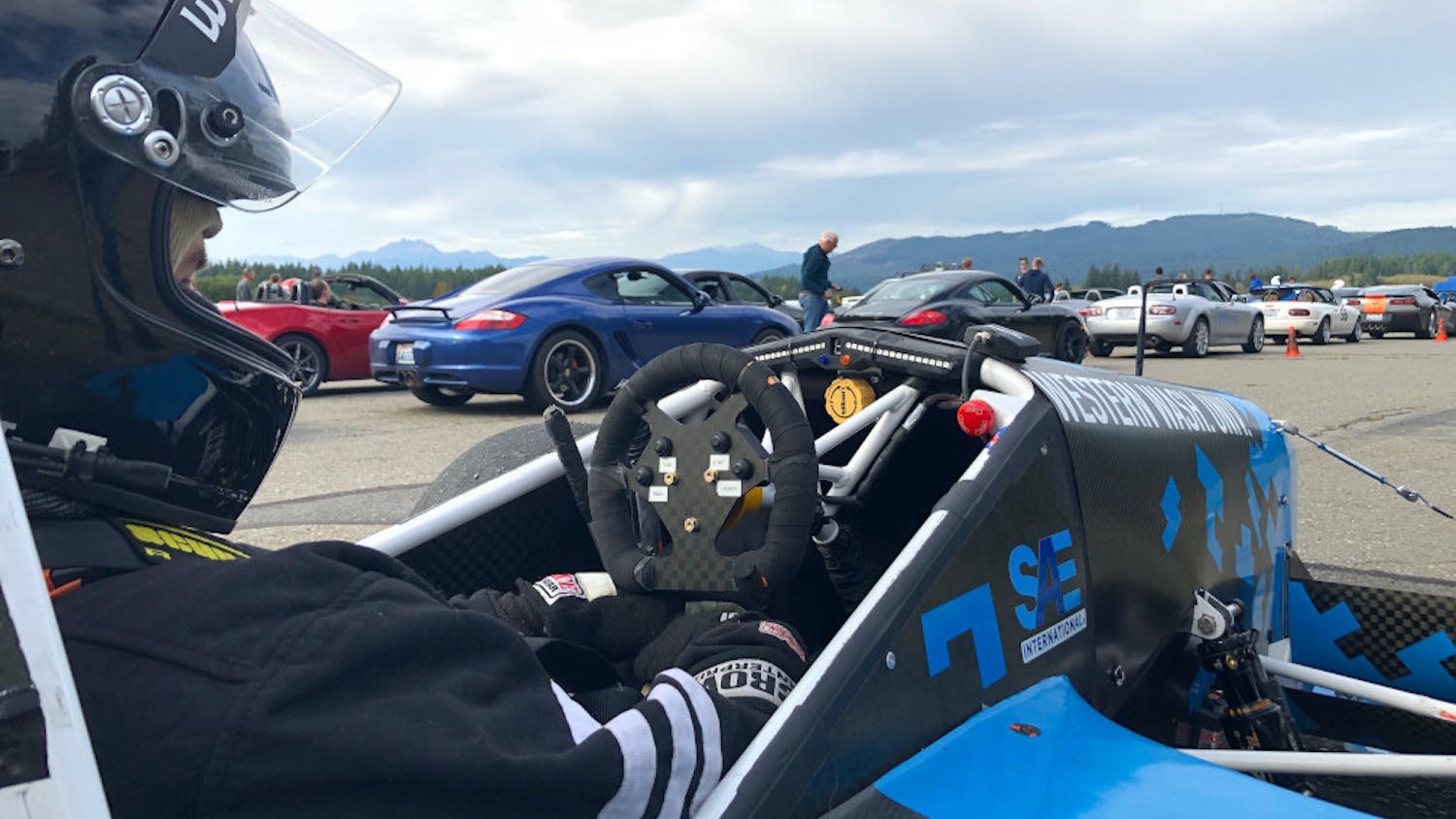Businesses in Whatcom County are being acknowledged for being proactive in serving the environment. Their main focus is to minimize the amount of waste they generate while inspiring locals to do the same.
The Community Food Co-Op, Mallard Ice Cream, and Wonderland Tea & Spices are three zero-waste businesses located in Bellingham. They are known for selling items in compostable and reusable containers instead of single-use plastics.
Zero waste means these local businesses have been identified as having notable zero waste impacts and also advertise themselves as zero waste. Being zero waste means waste prevention, reusing and recycling. It also means looking at the life cycle of a product and determining all the ways to use it efficiently according to Zero Waste Washington.
Melissa Elkins, administrative and sustainability manager for Community Food Co-op, strives to encourage others to incorporate daily habits to become better stewards of the earth.
“We have color-coded waste bins in locations all over the stores, kitchens and our offices,” Elkins said in an email. “Education is key, and leading by example is also something that is helpful.”
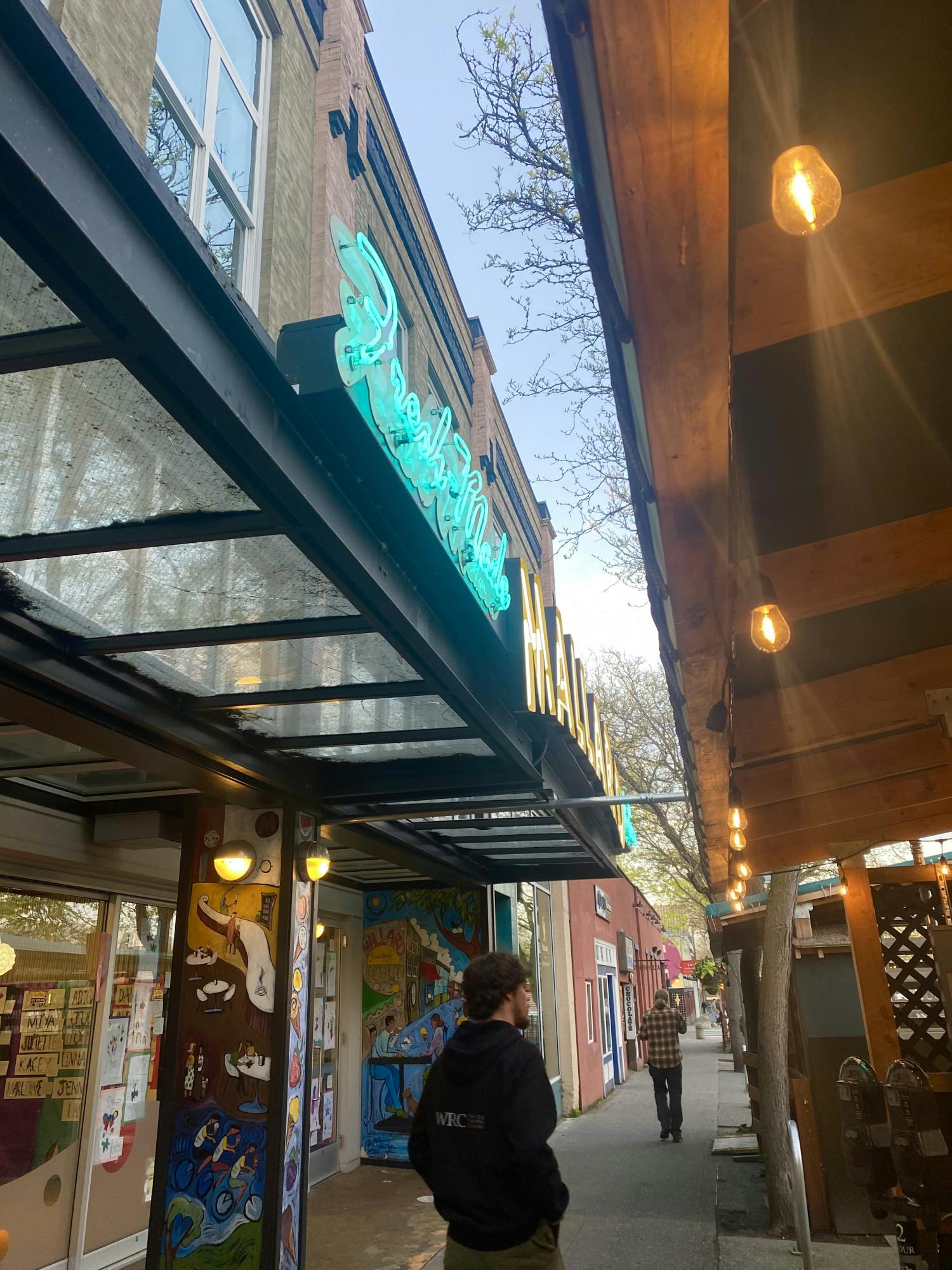
Mallard Ice Cream strives to be part of a more sustainable environment and is one of the five businesses in Whatcom County acknowledged for being zero waste. // Photo by Michaela Camlin
Issues arise around residents not contributing to putting their waste into the correct bin resulting in environmental damage.
Elodie Cerauskis, an AmeriCorps volunteer in service to America specializing in the Food Recovery Program at Sustainable Connections, works toward sharing simple ways for society to progress toward being more sustainable.
“Food makes up 30% of our landfill,” Cerauskis said. “Food waste is one of the top contributing factors leading to climate change. Mitigating your food waste is one of the biggest things you can do to combat climate change. Meal prepping and only buying what you need is essential to decrease your food waste.”
In Bellingham, the total cost for weekly residential collection and disposal service for a 60-gallon capacity is $27.46 per month for a container and $41.01 for containers of 90-gallon capacity, according to Bellingham's Sanitary Services website. Cost can be a deciding factor in where residents put their waste and how they dispose of it.
Whatcom County is aware of this issue and has taken part in working with the food waste program known as FoodPlus.
FoodPlus is a cost-effective program that helps reduce waste, lessen your garbage bill and support new businesses creating new products from recycled materials. Food scraps, food-soiled papers, compostable packaging and yard waste are all composted into rich soil amendment through the FoodPlus program.
“Any Whatcom County business that produces or sells food should be participating as this is basically a free (to the business) system to reduce your waste and also feed our community, it’s a win-win,” Elkins said. “Check out Towards Zero Waste | Sustainable Connections for more information.”
Mallard Ice Cream has been recognized for being among the few zero-waste businesses in Bellingham. They use compostable products such as cups, spoons and anything else they can get their hands on, said Tatem Lettelleir, a Mallard Ice Cream employee.
“We dispose of our waste by putting it in our alley where we will either put it in landfill bin, compost bin, cardboard bin or the film waste bin,” Tatem said. “Most of our product that we use to put in the ice cream is either locally sourced, such as local businesses or local farms or we buy it in bulk to produce as little waste as possible.”
There are many ways for non-business owners to reduce waste as well, such as bringing your own container for buying bulk foods, bringing your own bags to the grocery store, purchasing smaller portions of food as well as composting what goes bad instead of putting it in a landfill.
“You don’t have to be a community-owned store to care about our community and the environment,” Elkins said. “It all starts with one decision, one small change that you make. After a couple of weeks that becomes part of your daily habits, so then you add in another, and another. The cool thing is, it gets easier as you go because you start to see all the possibilities that surround you.”
Check out Zero Waste Washington and Sustainable Connections for more information on Toward Zero Waste and Food Recovery Programs.
Michaela Camlin(she/her) is a third-year at Western Washington University studying journalism focused on public relations, and reporting on city news.
You can reach her at michaelacamlin.thefront@gmail.com.


